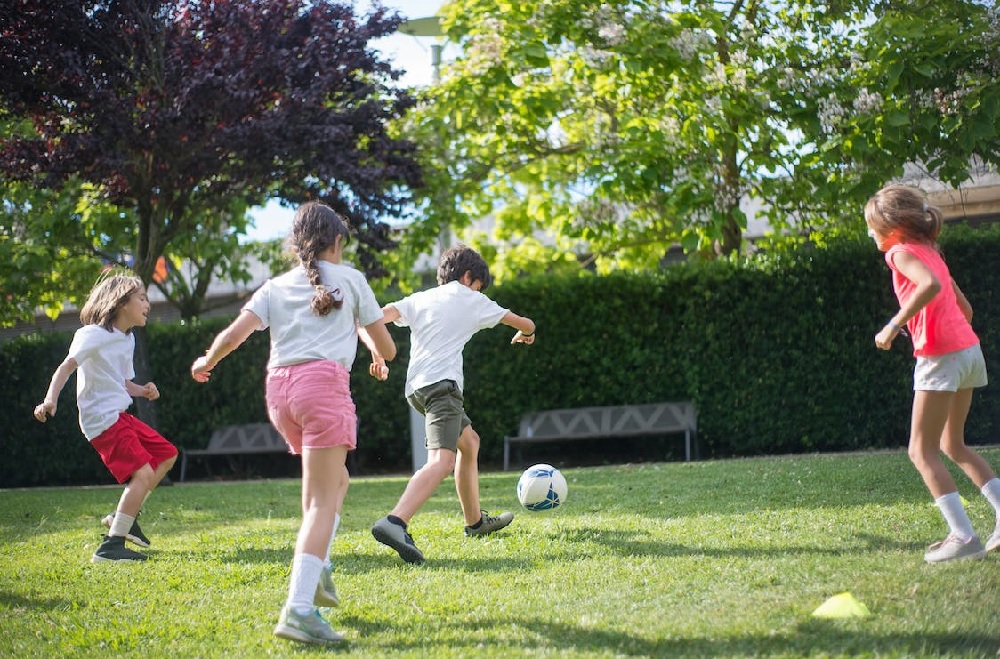Unveiling the Value of Games and Sports: Nurturing Body, Mind, and Character
Introduction:
Games and sports are not merely activities; they are essential components of holistic development. They contribute to physical fitness, mental well-being, and character building. This essay delves into the significance of games and sports, their role in personal growth, education, teamwork, and the lifelong lessons they impart.
Physical Fitness and Well-Being:
Engaging in games and sports is a powerful way to maintain physical fitness. They enhance cardiovascular health, strengthen muscles, improve flexibility, and promote overall well-being. Regular physical activity through sports reduces the risk of lifestyle-related diseases.
Mental Resilience and Stress Relief:
Participation in sports isn’t just about physical exertion; it also challenges the mind. Sports demand strategy, quick decision-making, and concentration. Additionally, they serve as stress-busters, releasing endorphins that uplift mood and reduce anxiety.
Character Building and Discipline:
Games and sports instill discipline, teamwork, and sportsmanship. They teach individuals the importance of rules, fair play, and respecting opponents. Through wins and losses, players learn humility, determination, and perseverance.
Social Skills and Teamwork:
Team sports foster collaboration, communication, and interpersonal skills. Players learn to coordinate, adapt, and trust their teammates. These skills extend beyond the field, proving invaluable in personal and professional settings.
Cognitive Development:
Sports require strategic thinking, pattern recognition, and quick problem-solving. Engaging in sports stimulates cognitive functions, enhancing mental agility and creativity.
Education and Holistic Development:
Games and sports complement academics by providing a well-rounded education. They teach time management, prioritization, and the art of balancing studies and extracurricular activities.
Gender Equality and Empowerment:
Games and sports are platforms that promote gender equality. They challenge stereotypes, empower girls and women, and offer equal opportunities for skill development and recognition.
Lifelong Lessons:
The lessons learned on the field are transferable to life. Resilience in the face of challenges, leadership qualities, and the ability to handle success and failure gracefully are attributes cultivated through sports.
Healthy Lifestyle:
Participation in games and sports encourages a healthy lifestyle that extends into adulthood. The habits formed during youth can shape lifelong choices for physical activity and well-being.
Social Interaction and Community:
Sports bring people together from diverse backgrounds, fostering camaraderie and building a sense of community. Sporting events create opportunities for social interaction and cultural exchange.
Overcoming Obstacles:
Sports teach individuals to conquer physical and mental barriers. The determination to master a new skill or surpass personal best translates to facing challenges outside the field.
Inspiration and Role Models:
Sports icons serve as sources of inspiration, demonstrating dedication, hard work, and the potential for excellence. Their stories motivate individuals to strive for greatness.
Inclusivity and Diversity:
Games and sports celebrate diversity. They provide an inclusive platform where people of all backgrounds can come together, transcending boundaries.
Conclusion:
The value of games and sports goes beyond the surface of physical activity. They contribute to holistic growth – nurturing the body, sharpening the mind, and building character. The lessons imbibed in the field become tools for success in various aspects of life. As we encourage the younger generation to engage in games and sports, let us remember that investing in these activities is an investment in individual well-being, social cohesion, and a brighter, more resilient society.

